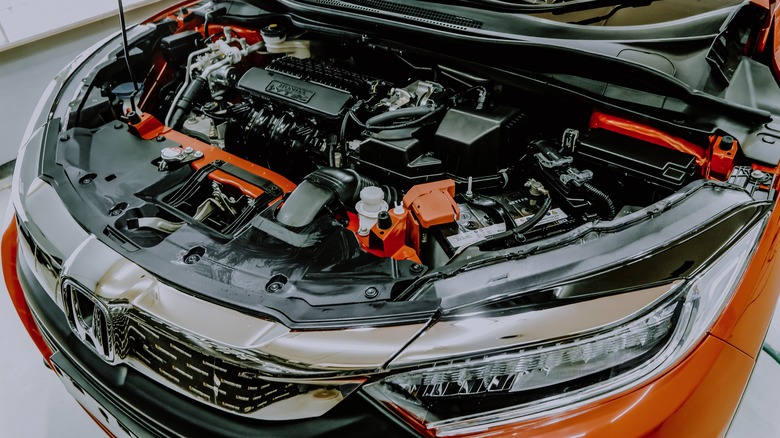Which Honda Engines Have Oil Dilution Problems?
In 2022, Honda was hit with a class action lawsuit that alleged that cars equipped with Honda's 1.5-liter turbo engines were prone to oil dilution issues, in many cases rendering them dangerous to drive. The lawsuit alleged that several Honda models were subject to a manufacturing defect that caused oil to mix with fuel when the car was running. According to the lawsuit, Honda released instructions for owners of affected models, simply instructing them to change the cars' oil more frequently and drive for longer periods during warm weather to reduce oil dilution issues. However, these instructions did not satisfy all of its customers who felt that they should be compensated for the manufacturing defect.
The lawsuit further alleges that Honda knew about the manufacturing defect before it even put the cars on the road. In 2018, Honda allegedly acknowledged that the affected cars might "experience engine oil dilution" and "result in increased oil level and can cause a [cylinder] misfire." Honda also updated its warranty policy to extend the coverage for 2016–2018 Civics that experienced the defect. However, Honda failed to issue a reliable fix for the issue, and instead tried to "place the blame on drivers," per the lawsuit filing.
What is oil dilution in a car's engine?
"Oil dilution" is when the fuel and oil inside of a car's engine start to mix with each other during use. The unburned fuel in the engine sprays onto the cylinder and drips down the cylinder walls into the motor oil. The fuel then starts to overflow the motor oil, causing spillage. Since the motor oil is being diluted with fuel, it can also change the viscosity of the substance.
Motor oil has a higher viscosity than engine fuel, which contributes to its ability to lubricate the moving parts within the engine, preventing wear and tear from harmful friction as the parts move against each other to propel the car forward. As the fuel dilutes the oil, the less viscous solution creates a less protective oil film over the parts the oil is meant to protect, leading to damage to the engine over time.
In the case with Honda, the excessive oil dilution in the 1.5-liter engines is caused by the Direct Injection technology used in the engine. The engine shoots fuel deep into the engine block, but since the engine is also designed to produce less heat, it doesn't produce enough heat to evaporate the excess fuel, causing it to leak into the motor oil.
What causes the Honda oil dilution problem?
The class action lawsuit filed in Illinois alleges that the oil dilution issue in affected models is a "direct consequence" of the "technological advancement" Honda implemented in its engines that use gasoline direct injection; causing an excessive amount of unburned fuel, oil, and air, typically referred to as "blow-by."
The direct injection of gasoline bypasses the traditional method of mixing gasoline with air before sending it to the cylinder, which causes unburned fuel to stick to the cylinder walls. The pistons then scrape the unburned fuel off and into the motor oil. A Honda spokesperson acknowledged the defect to the engine, stating that the heat efficiency of the engine could cause it to heat up slower, making it reach the temperature needed to evaporate excess fuel from the TDI system more slowly. This defect has caused thousands of dollars in damages to the owners and leasers of the affected cars, and was never subjected to recall by Honda.
The Honda cars that suffer from oil dilution problems
The primary Honda models affected by the oil dilution issue are the 2019-2023 Honda CR-V, 2019–2022 Honda Civic, and the 2018-2023 Honda Accord models — all are equipped with the 1.5-liter turbo engine. These were the models mentioned by name in the class action lawsuit, which aimed to cover any person in the United States who purchased or leased one of these cars and experienced issues with excessive oil dilution.
However, any car equipped with a 1.5-liter turbo engine from Honda could potentially experience this oil dilution issue. The class action case is still pending at the time of this article's writing, and there has yet to be a resolution within the court system. Those who have one of these engines and are dealing with oil dilution should keep their eye on the case to see if there are any updates or entitlements for them, as it would cover all affected vehicles.



